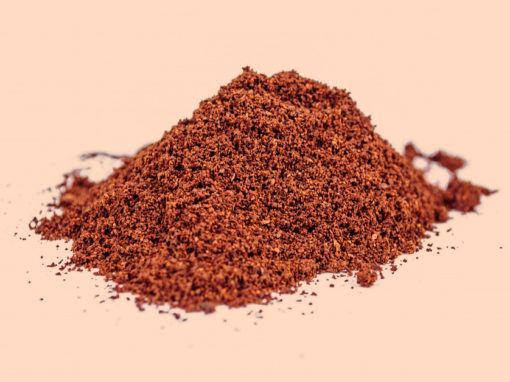As a man ages, he might notice new changes in his body, including a decline in sexual abilities compared to his early adult life. These transitions can be due to physical and emotional factors.
Let’s look at the scientific relationship between ageing and sex and ways to combat these common issues.
Age and sex drive
Sex drive is a person’s desire to satisfy their sexual appetite. This term is used interchangeably with libido. Both physical and emotional health influence a person’s libido.
Although sex drive varies drastically from one person to another, a pattern observed is the decrease of libido with advancing age. As a man ages, he experiences hormonal changes such as a drop in testosterone levels. These changes may link to a waning sex drive.

Do men stop ejaculating as they get older?
Despite popular belief, the inability to ejaculate isn’t only because of old age. It is also associated with a man’s overall health, diet, genetics, and sexual habits.
Research on sex and ageing shows that healthy men tend to retain their sexual desire and performance even well past midlife.
However, due to various factors, older men experience orgasms less intensely and frequently. This is why some don’t ejaculate every time they have sex. Erectile dysfunction (ED), a condition that becomes more prevalent with age, could also play a part in this phenomenon.
Cultivating good habits, hormonal medication, having the right motivations, and treating underlying health conditions can help combat this issue effectively.

What causes a man to not be able to climax?
The inability to climax is known as delayed ejaculation or difficulty in reaching orgasm during sex. It is a problem that affects long-term sexual well-being and confidence. But what are the reasons behind this phenomenon?
Side effects of medications
Certain medications are known to affect male libido, ejaculation, and orgasm. Drugs that cause these side effects typically block dopamine or testosterone release, affect blood flow, and influence the nervous system.
Some of these medications are used to treat:
- Depression and anxiety (SSRIs)
- Severe pain, (oxycodone, methadone)
- High blood pressure (beta-blockers, diuretics)
- Heartburn (famotidine)
Substance use
Excessive alcohol intake can cause delayed ejaculation and less intense orgasms in men. Alcohol dampens the central nervous system, raises angiotensin (a hormone that constricts blood vessels), and decreases blood flow to the penis.
Health conditions
Some medical conditions and procedures that involve the nervous system may compromise your sexual performance either temporarily or permanently. For example:
- Bladder or prostate surgery
- Stroke
- Spinal cord injury
- Nerve damage
- Multiple sclerosis
- Diabetic neuropathy

Old age
Increasing age can cause a decrease in penile sensitivity, so it’s normal for ejaculation to take longer. A review comparing multiple studies showed significant correspondence between age and penile desensitisation, particularly in men aged 55 and above. Luckily, these problems can usually be resolved.
What happens if a man stops ejaculating?
An ejaculation typically does not interfere with the ability to achieve erections. In other words, men will likely still find sex pleasurable even if they have difficulty ejaculating upon climaxing.
Though ejaculation issues might pose a challenge for men looking to have children, it doesn’t affect your sex life as much as you’d think.

How to stay sexually active as an older man?
Not only does being sexually active help with your physical health, but it also boosts your self-esteem and relieves stress. A simple rule of thumb to preserve your sex life well into your later life is to take good care of your health.
Here’s how you can stay sexually active as you grow older.
- Communicate with your partner
- Maintain a balanced diet
- Avoid excessive drinking and smoking
- Getting a minimum of 7 hours sleep a night
- Exercise regularly
- Treat underlying health conditions (e.g. ED, hypogonadism)
Treatment options
If you’re having difficulties with getting an erection, maintaining one, or ejaculating, these widely accepted treatments can help.
Medications for ED
Phosphodiesterase type-5 (PDE5) inhibitors are the first line of treatment for men with ED. Some ED medications under this classification include:
- Sildenafil (e.g. Viagra, Iqnyde)
- Tadalafil (e.g. Cialis, Talis)
- Vardenafil (e.g. Levitra, Staxyn)
- Avanafil (e.g. Stendra)
- Udenafil (e.g. Zydena)
Testosterone Support
Since testosterone is naturally produced in your body to aid libido production and fertility, supplements that contain this hormone can help enhance your sexual function.
Some additional benefits offered by oral testosterone include:
- Improved muscle mass
- Improved semen quality
- Increased energy and endurance
- Strengthened immune system
Want to read more on how exactly testosterone influences the quality of your sex life? Read How to increase your testosterone levels naturally.
Conclusion
Ageing can be tough, especially when it starts to affect your libido and sexual performance.
The good news is with simple changes to your lifestyle and taking suitable medications; you can preserve your sex life even as you journey into late life.
This article is for informational purposes only and does not constitute medical advice. The information contained herein is not a substitute for and should never be relied upon for professional medical advice.
Book a consultation with andSons Malaysia’s medical team to learn more about sexual health conditions and available treatments here.


